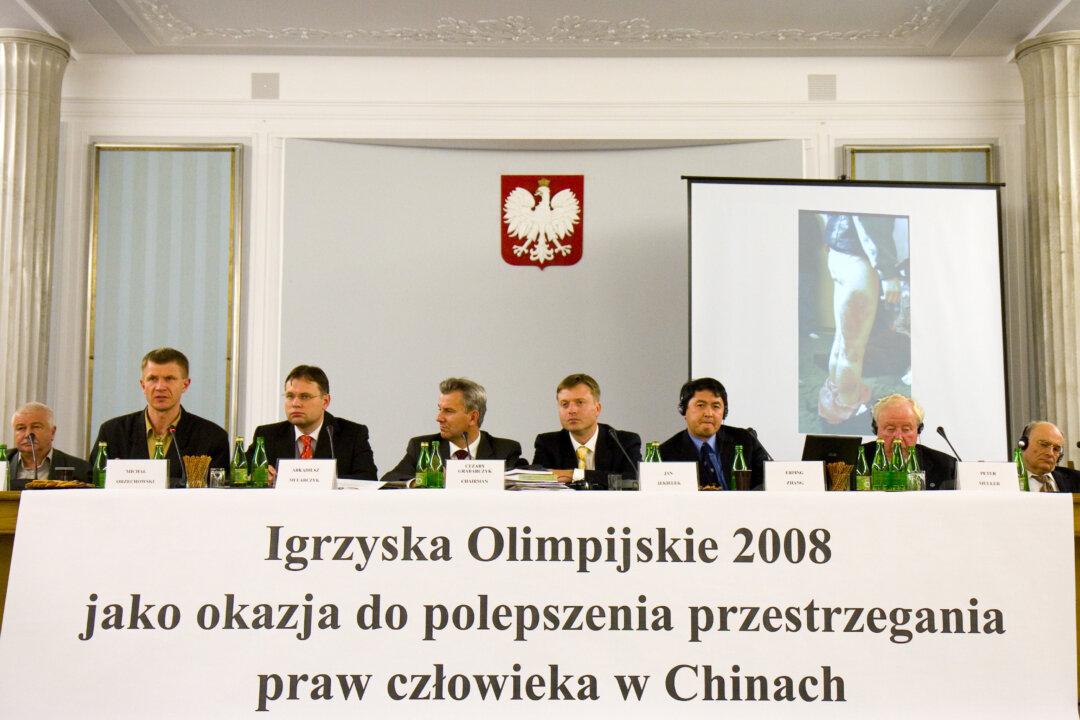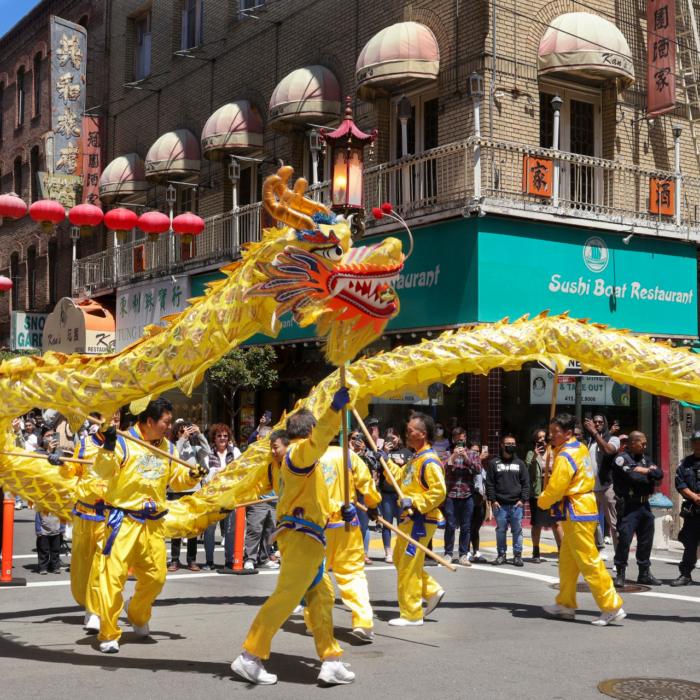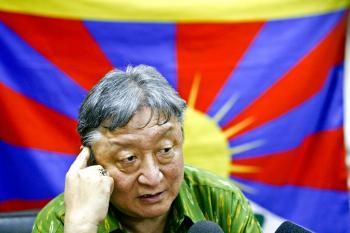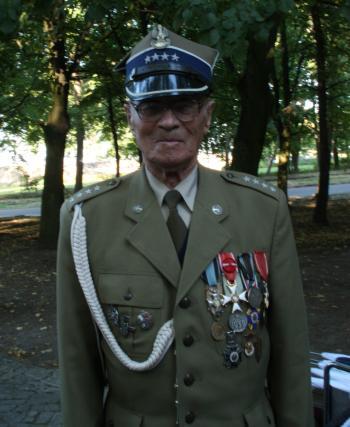Concurrently, World Solidarity issued an “Appeal to the Polish leaders and public opinion to cease participation in the 2008 Olympics in Beijing.” The appeal was endorsed by Andrzej Gwiazda, one of the founding fathers of the Polish Solidarity movement, along with Polish parliamentarians and human rights activists Andrzej Czuma and Julia Pitera, and past Amnesty International Poland Director Bogusław Stanisławski, among others.
Both protests were presented at an October 9 conference co-organized by the Polish Parliamentary Justice and Human Rights Committee (PPJHRC) and The International Society for Human Rights (ISHR), which focused on using the impending Games to try to better the human rights situation in China. Polish parliamentarians Cezary Grabarczyk, PPJHRC Chairman, and PPJHRC Vice-Chair Arkadiusz Mularczyk presided over the event.

Conference speakers explored Chinese state human rights violations against Tibetans, Falun Gong, and other persecuted groups, along with how the People’s Republic of China’s (PRC) economic rise has been used by the Chinese leaders to further entrench systems of societal control.
Statements from the Chinese communist regime have repeatedly attacked attempts by human rights groups to link human rights improvement with Beijing being allowed to hold the Olympics, as “politicization” of the Games.
Apart from debating how the games could best be used to better the human rights realities in China, conference attendees saw a slideshow of 65 Chinese who had lost their lives at the hands of the state following the decision to grant the 2008 Olympics to Beijing. For the duration of the event, slides continued showing evidence of torture, as well as images from a CCP state security manual instructing personnel on how to enact torture methods.

Polish elected officials have been strong on human rights in the PRC recently, commented Ministry of Foreign Affairs Asia Pacific Department First Secretary, Konrad Maziarz.
Ludwik Dorn, Speaker of the Sejm, spoke at length about human rights with Politburo Standing Committee Member Wu Bangguo, during Wu’s official visit to the country last May, said Maziarz.
Dorn also granted the conference organizers use of the Sejm’s Column Hall, the Polish parliament’s prize meeting space, indicating his stance on the issue, said Grabarczyk, adding that he hoped that some famous Polish personalities such as Lech Walesa would soon take up the issue.
The PTSA is an organization supporting ethical transplantation and an active lifestyle for transplant recipients, and part of the World Transplant Games Federation.

Other groups supporting an Olympic boycott unless Beijing changes its approach include Reporters Without Borders and the Committee to Investigate the Persecution of Falun Gong in China.
In a letter to the conference, 2006 Olympic Bronze Medalist Martins Rubenis, echoed the message of the two protesting organisations:
“I appeal to the entire world to unite and stop this blemishing of the Olympic ideals with blood.”






